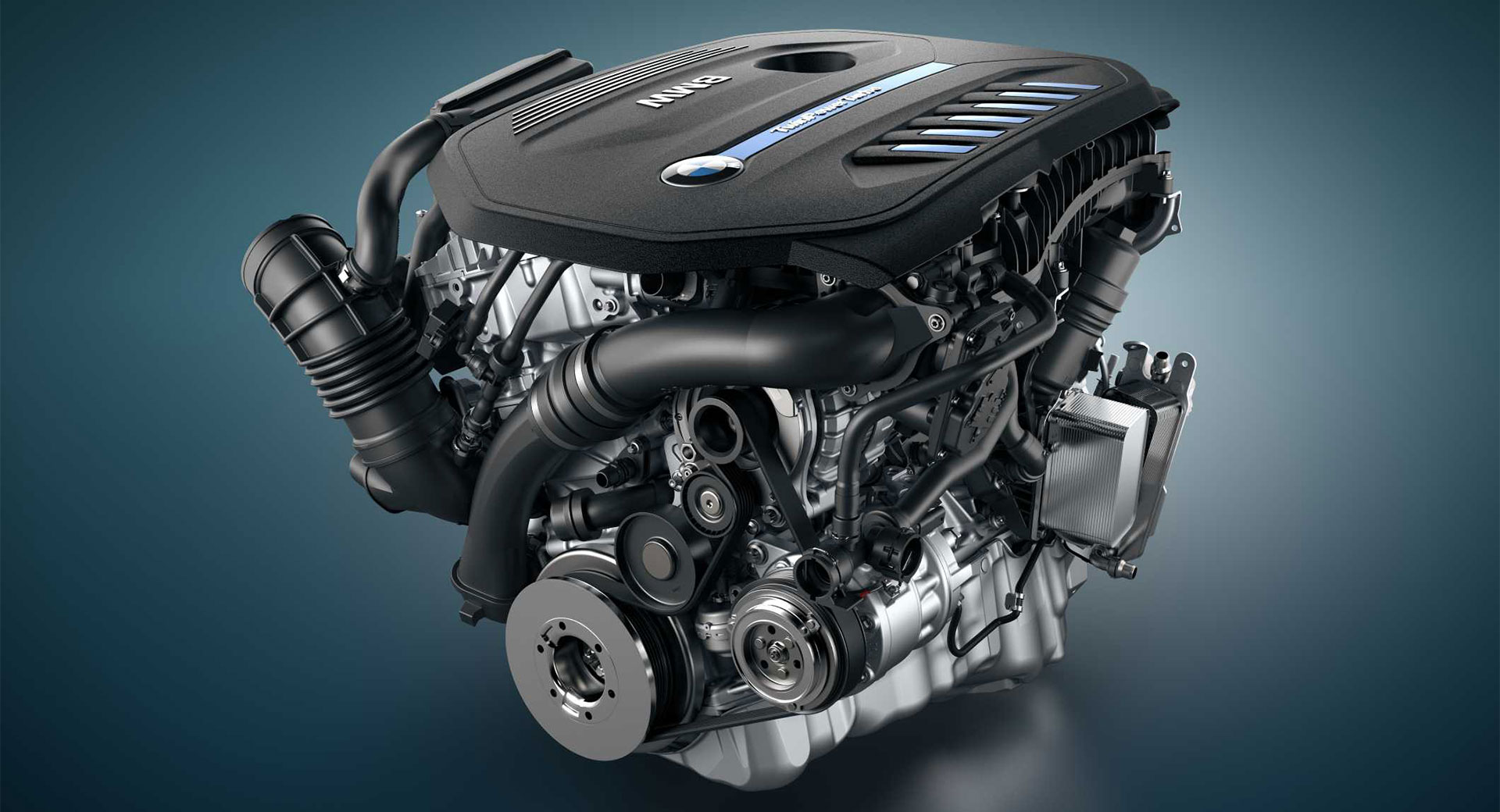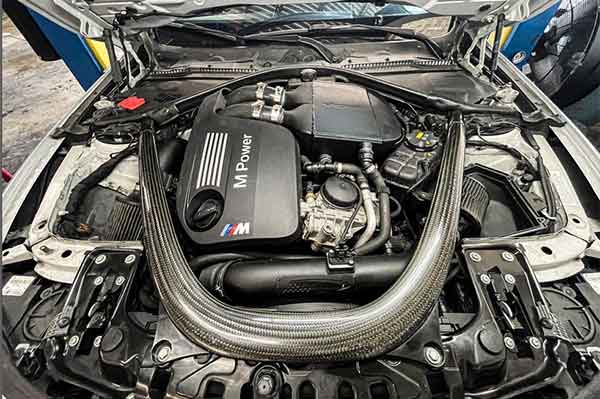A New user's Guide to Choosing the Right BMW Engine for Your Demands
A New user's Guide to Choosing the Right BMW Engine for Your Demands
Blog Article
Revealing the Intricacies of Next-Generation Power Units: a Deep Study Advanced Engine Technologies and designs
In the world of automobile engineering, the relentless quest of sustainability, effectiveness, and efficiency has actually pushed the advancement of power systems to extraordinary elevations. As we stand on the precipice of a brand-new era in transport, the ins and outs of next-generation engine styles bid us to discover the innovative technologies and technologies that assure to redefine the driving experience. From advanced products that press the limits of resilience and weight reduction to sophisticated turbocharging and turbo charging systems that boost power result to brand-new degrees, each component of these power units holds a vital to opening the future of automobile design. Diving deeper right into the worlds of emission control, smart engine management systems, and the horizon of power system growth, we find ourselves on the cusp of a transformation that guarantees to reshape the landscape of movement as we understand it.
Development of Engine Materials

The change towards progressed engine materials has actually additionally allowed engineers to design engines with greater power outputs while preserving gas effectiveness criteria. The usage of lightweight products minimizes the overall weight of the engine, leading to enhanced fuel economic climate and reduced exhausts. In addition, improvements in materials technology have actually enabled better thermal management within engines, resulting in raised reliability and longevity.
Turbocharging and Supercharging Technologies
How do Turbocharging and Supercharging Technologies reinvent engine performance and effectiveness in modern lorries? Turbocharging and turbo charging are innovations that dramatically improve engine performance by boosting the amount of air intake into the burning chamber. Turbocharging achieves this by utilizing a generator driven by exhaust gases to pressurize the consumption air, while supercharging makes use of a belt- or chain-driven compressor to attain the very same effect.
These technologies make it possible for smaller, much more fuel-efficient engines to create power equivalent to larger ones, referred to as downsizing. Forcibly even more air into the cyndrical tubes, turbocharging and supercharging improve burning effectiveness, causing enhanced horse power and torque output without a substantial increase in engine dimension. This results in far better velocity, towing capability, and general driving performance.
Moreover, turbocharging and turbo charging contribute to boosted gas effectiveness by allowing the use of smaller engines that eat less gas under normal driving conditions - bmw engine. This combination of improved efficiency and performance has made turbocharging and supercharging indispensable elements of many modern-day engine styles
Exhaust Control and Environmental Effect
With increasing worldwide issues relating to air high quality and ecological sustainability, the application of exhaust control technologies in cars plays a crucial function in minimizing harmful contaminants launched into the environment. Modern cars are equipped with sophisticated emission control systems that assist reduce the ecological effect of auto procedures. Catalytic converters, for example, are developed to transform poisonous gases such as carbon monoxide, nitrogen oxides, and hydrocarbons into much less hazardous compounds like co2 and water vapor.
In addition, advancements in engine technology, such as the assimilation of exhaust gas recirculation systems and discerning catalytic decrease, have considerably added to reducing emissions. These modern technologies function in tandem to enhance burning efficiency and lessen the launch of damaging toxins into the air. In addition, the growth of crossbreed and electric vehicles stands for an essential step towards minimizing the general ecological footprint of the transport sector.
Intelligent Engine Administration Equipment

Moreover, these systems make it possible for vehicles to meet rigid exhausts criteria without compromising efficiency, offering a more eco-friendly driving experience. The combination of expert system and artificial intelligence capacities in engine monitoring systems remains to push the boundaries of what is feasible, leading to additional improvements in effectiveness, reliability, and general car efficiency. bmw engine. As vehicle innovation breakthroughs, intelligent engine management systems will play a critical role in shaping the future of transport towards an extra lasting and efficient direction
Future Trends in Power Unit Growth
As intelligent engine management systems lead the way for enhanced control and optimization in modern-day vehicles, future fads in power device advancement are positioned to redefine the landscape of vehicle propulsion modern technologies. These different Going Here power resources use boosted effectiveness and efficiency while lining up with stringent environmental laws.
An additional significant fad is the integration of advanced products and making strategies. Light-weight products such as carbon fiber and light weight aluminum are being utilized to lower general car weight, boosting gas efficiency and performance. Additionally, improvements in 3D printing and additive production are making it possible for the production of complicated engine components with higher accuracy and resilience.
In addition, fabricated knowledge and maker knowing Our site are playing an important duty in enhancing power device performance. These technologies enable real-time tracking and adaptive control, causing more reliable and effective power delivery. On the whole, future patterns in power unit advancement are geared towards sustainability, effectiveness, and efficiency, driving the automotive sector in the direction of a new era of propulsion technologies.

Final Thought
In final thought, the developments in engine products, turbocharging, exhaust control, and intelligent management systems have led the method for next-generation power devices. The elaborate designs and technologies in modern-day engines showcase the recurring evolution of automobile technology.
Exploring the progressive advancements in engine products has been crucial in boosting the performance and effectiveness of modern engines. Over the years, the advancement of engine products has actually played a vital duty in pressing the boundaries of what More Bonuses engines can attain.The shift in the direction of progressed engine materials has actually also allowed designers to design engines with greater power outputs while maintaining gas efficiency standards.The application of smart engine monitoring systems in modern-day lorries has transformed the method engines are regulated and optimized for performance and effectiveness. By gathering data in real-time and examining it with innovative algorithms, intelligent engine monitoring systems can adjust to driving styles, ecological variables, and engine health and wellness to make best use of power outcome while minimizing fuel usage and emissions.
Report this page